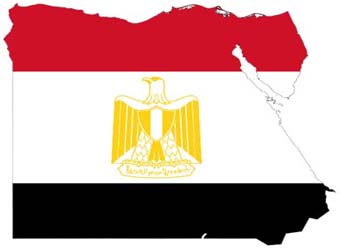Egypt’s interim government plans to expand the country’s tax base and cut energy subsidies before the May elections in a bid the bolster the struggling Arab economy, the country’s finance minister said Friday.
Three years after Egypt’s revolution, the nation’s military-backed interim government hopes a major economic restructuring strategy will stem its bleeding finances, reassure international investors and spur strong enough growth to ease dangerously high unemployment.
Political turmoil fueled investor flight and pushed Egypt’s economy to the point of collapse. Now, recently appointed Finance Minister Hany Qadry Dimian said the government has the power to roll out new economic policies.
“There’s a more accommodative behavior and will to move reforms forward,” he said in an interview in Washington.
“We can have energy subsidies and income-tax reforms before the presidential elections,” said Mr. Dimian, who was attending the semiannual meetings of the International Monetary Fund and World Bank along with other finance officials.
In July, Egypt’s military chief ousted the nation’s first democratically elected president, Muslim brotherhood-backed Mohammed Morsi, touching off a period of sustained state repression against the once-powerful opposition group. Traditional opponents of the brotherhood in the Gulf enthusiastically supported the coup, pouring billions of dollars into Egypt to help stabilize the fraying economy.
Prior governments had rejected an International Monetary Fund bailout, facing political barriers to taking tough economic steps the IMF said was necessary to restore economic health. Instead, Egypt’s neighbors helped stabilize the country’s weakened exchange rate and finances.
Mr. Dimian said the government could consider returning to the IMF for financial assistance, but only after the presidential elections.
“We don’t intend to engage with the IMF on a lending program before we have an elected government and before we implement some tough economic-reform measures. Then we will examine to see if we need a program,” he said.
Cairo is planning to roll out a 1 billion-Egyptian-pound ($143.3 million) stimulus package over 18 months to subsidize a restructuring of the telecommunications, manufacturing and tourism industry, through lower borrowing rates, he said. The government also plans to expand the value-added tax to include a broader swath of the sectors, instead of just manufacturing.
Combined with the program to slash energy subsidies, those collective efforts should help cut the government’s budget deficit by two percentage points of gross domestic product next year from its current level around 12% of GDP, Mr. Dimian said.
That should help push growth to between 3% to 3.75% next year from around 2% this year, he said. The entire economic-restructuring strategy should help push growth rates to as high as 5% to 6% in three years, he said.
The minister said his office also plans to reform the government’s bidding process—simplifying and streamlining operations—and to pass new laws protecting government officials against criminal prosecution for failed state investments.
Both of those efforts should allow government spending to stimulate private-sector growth faster and obviate the need for Egypt’s military to be involved in the economy, he said. The military has sidestepped the cumbersome process in the past, stoking fears the government is planning to expand its role in the country’s economy.
Source: The Wall Street Journal


